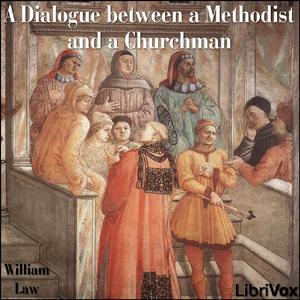- Dedication
- Chapter I: Why we should love God and the measure of that love
- Chapter II: On loving God. How much God deserves love from man in recognition of His gifts, both material and spiritual: and how these gifts should be cherished without neglect of the Giver
- Chapter III: What greater incentives Christians have, more than the heathen, to love God
- Chapter IV: Of those who find comfort in the recollection of God, or are fittest for His love
- Chapter V: Of the Christian’s debt of love, how great it is
- Chapter VI: A brief summary
- Chapter VII: Chapter VII: Of love toward God not without reward: and how the hunger of man’s heart cannot be satisfied with earthly things
- Chapter VIII: Of the first degree of love: wherein man loves God for self’s sake
- Chapter IX: Of the second and third degrees of love
- Chapter X: Of the fourth degree of love: wherein man does not even love self save for God’s sake
- Chapter XI: Of the attainment of this perfection of love only at the resurrection
- Chapter XII: Of love: out of a letter to the Carthusians
- Chapter XIII: Of the law of self-will and desire, of slaves and hirelings
- Chapter XIV: Chapter Of the law of the love of sons
- Chapter XV: Of the four degrees of love, and of the blessed state of the heavenly fatherland
"You want me to tell you why God is to be loved and how much.I answer, the reason for loving God is God Himself; and the measure of love due to Him is immeasurable love. . . ."
Saint Bernard's On Loving God is one of his most delightful, and most widely read, works. It stands in the tradition of the Fathers of the Church, but it carries patristic teaching into the Middle Ages and into the cloister. Its famous affirmation that God is to be loved without limit, sine modo, is taken directly from the letters of Saint Augustine. While the tract is not an example of scholastic theology, it shows a typically twelfth-century love of logic and an unexpectedly precise use of terminology. In reading or listening to this work, it is very important, as with all medieval authors, to take them on their own terms, without superimposing on them categories favored by later generations, even our own. Or especially not our own.(summary from wiki and the reader)
Saint Bernard's On Loving God is one of his most delightful, and most widely read, works. It stands in the tradition of the Fathers of the Church, but it carries patristic teaching into the Middle Ages and into the cloister. Its famous affirmation that God is to be loved without limit, sine modo, is taken directly from the letters of Saint Augustine. While the tract is not an example of scholastic theology, it shows a typically twelfth-century love of logic and an unexpectedly precise use of terminology. In reading or listening to this work, it is very important, as with all medieval authors, to take them on their own terms, without superimposing on them categories favored by later generations, even our own. Or especially not our own.(summary from wiki and the reader)
There are no reviews for this eBook.
There are no comments for this eBook.
You must log in to post a comment.
Log in











